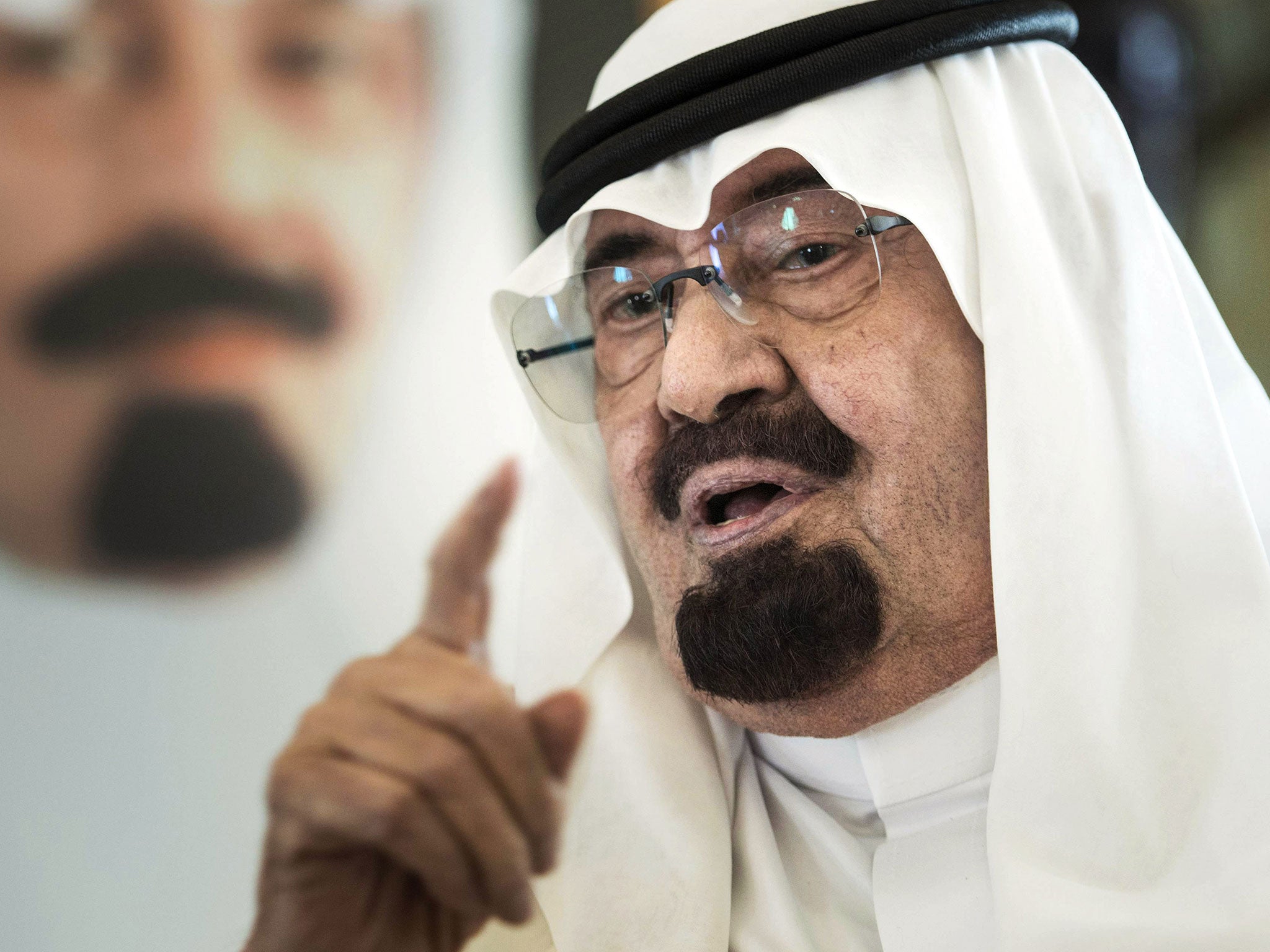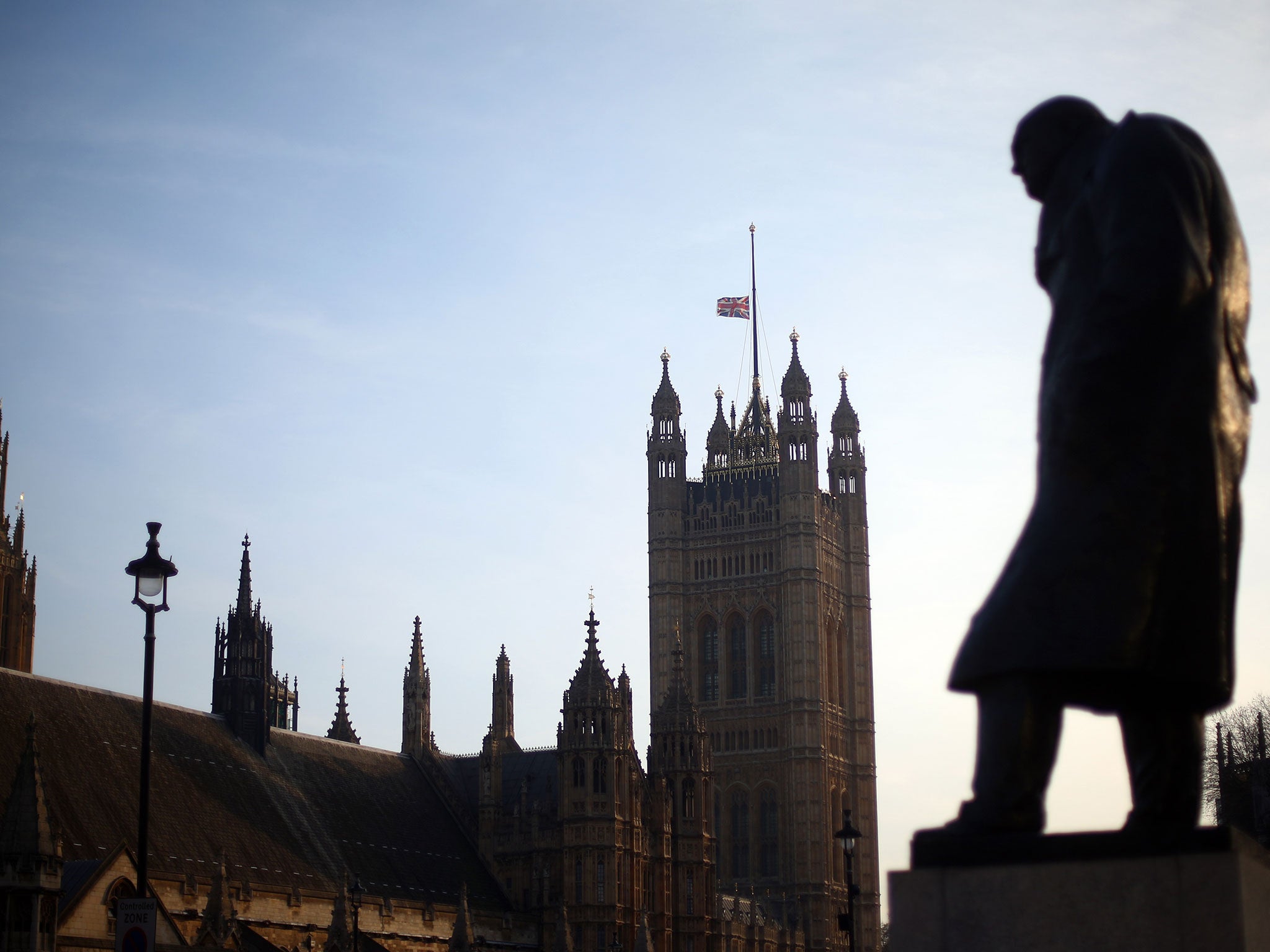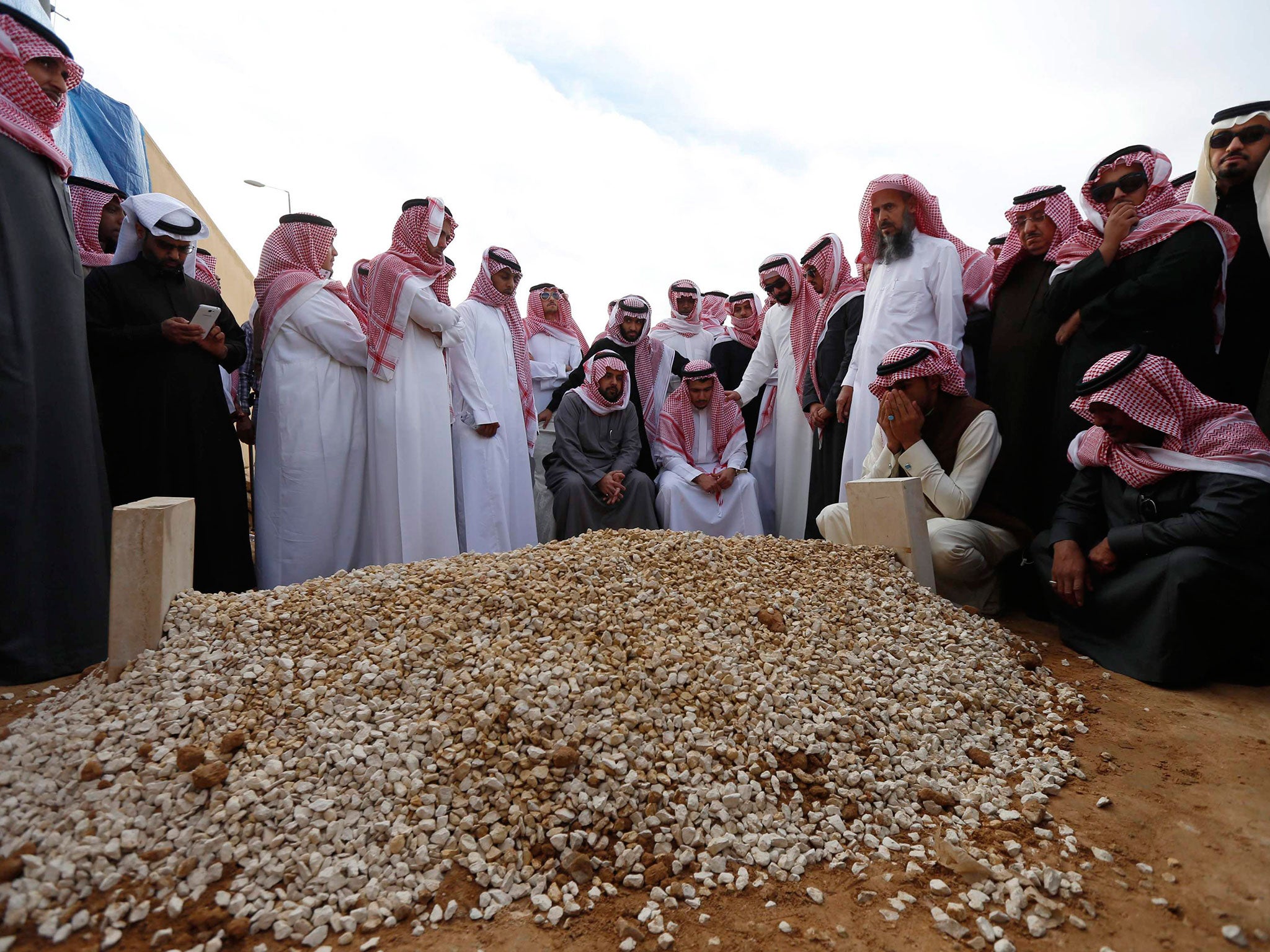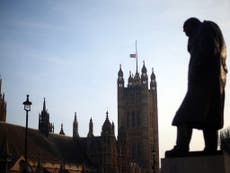King Abdullah's friends in the West stayed loyal, but revolution is on the horizon in Saudi Arabia
How long can our Western leaders go on stroking and purring and fawning over – and arming – these Croesus-like autocrats?


Poor old Kingdom. And old is the only word you can use about Saudi Arabia, where monarchical brothers take precedence over sons.
King Abdullah died at 90. He had outlived two other crown princes. His successor Salman is already 79 and cannot expect to survive much more than a decade. And at 69, the new Crown Prince Muqrin is no spring chicken. Can these old folk go on ruling one of the richest nations on earth without a revolution?
And how long can our Western leaders go on stroking and purring and fawning over – and arming – these Croesus-like autocrats before they make themselves look as pitiful to their own electorates as they do to the Arabs who have to tolerate Saudi Arabia’s Wahhabi ethics – the most purist, anti-apostate extremism and a ruling family of thousands whose cult-like worship was founded by a violent 18th-century Muslim preacher. Remember the Taliban? Remember, for that matter, Osama bin Laden?
Abdullah was “candid and had the courage of his convictions”, Obama told us. He had a “commitment to peace” and “strengthened understanding between faiths,” said statesman Cameron. All this of a man in whose kingdom dozens are beheaded every year after trials which match no recognised standards of fairness, in which a Burmese woman was dragged through the streets of Mecca this month, screaming her innocence of the murder of her step-son, only to have her head chopped off by a government executioner who needed three sword-hacks at her neck to decapitate her. That’s some commitment to peace and interfaith understanding.
But there’s another side to old Abdullah which was much to his credit, but naturally fell foul of our own love affair with Israel – his continued offer of peace with Israel and full Arab recognition of our notorious ally, in return for a Palestinian state and an Israeli military withdrawal from all of Gaza, the West Bank and Golan. In a nutshell, international compliance with UN Security Council Resolution 242, plus a new and peaceful Arab “Palestine”. “A heck of a deal” is how President Bill Clinton described it when Abdullah – then Crown Prince – disclosed his plan in 2002.

The luckless John Kerry gave it his blessing – a kiss of death, perhaps, but at least a sign of its continued recognition. Even Egypt’s military Tarzan, General-President Abdel-Fattah al-Sisi, has demanded a revival of the idea. Benjamin Netanyahu was reported to have talked of the “potential” of the initiative – although given his effective destruction of any future Palestinian state by robbing more West Bank land from the Arabs, he can scarcely have been serious.
The best Obama could produce on the subject this week was to burble on about Abdullah’s “bold steps” without specifying which particular “step” he was talking about. Israeli elections – US elections, for that matter – are too close for any more courageous language to come from the leader of the world’s only (for the moment) superpower.
In his last days, the previous king Fahd’s physical incapacities became obvious to all who knew him. Abdullah was reportedly senile, his successor Salman slandered within hours of taking office as suffering from dementia. But these old boys are shrewd. They know how succession must be decided in private, how a thousand royal princes must be suborned and bribed and favoured while balancing oil wealth and Isis-style Wahhabism with a truly blindfolded symbol of justice.

Thus US presidents could praise the magnanimity of Saudi wisdom while a Pentagon committee heard a Rand corporation expert describing Saudi Arabia after 9/11 as “a kernel of evil in the Middle East”. Thus in Lebanon, the dead king could be called an “Arab knight” – standard fare for Sunnis who have received the Kingdom’s largesse – while in the halls of Isis, his demise was welcomed as further evidence of the decay of the House of Saud. Bin Laden had the same aim of destroying the monarchy after he lost his citizenship, perhaps desiring the crown of Arabia for himself.
No, Abdullah was neither narcissistic nor vicious; he was no mafia clown like Gaddafi nor a tycoon-killer like Saddam. But he could move from political courage – his Arab-Israeli peace proposal – to the tribal Sunni insanity of privately urging the US to attack Iran. The Sunni fear of an expanding Shia empire led Saudis to support the cruellest of Wahhabi insurgents. Isis and the Taliban are both creatures of the Saudi creed. Abdullah offered the Lebanese military $4bn in French military aid, which he hoped would be used to control both Isis proxies and Hezbollah’s thousands of fighters – an offer stymied when Israel objected to the purchase of rocket-firing helicopters which, it claimed, might be turned against itself.
Abdullah’s defenders were legion – and mostly well-paid – and we shall hear from them in the coming days. They will speak of his “modernity” and of his encouragement of women’s education, his curtailment of religious “fatwas”, his granting of a little freedom to Saudi critics. These defenders will hope the lashing of bloggers moves out of public consciousness for a while.
Abdullah was rightly fearful of the Arab revolutions in 2011, sending his troops to crush Shia dissent in Bahrain while promising to throw almost £300bn in education grants, new infrastructure, public housing and unemployment benefits at his own people to buy their quiescence.
But age is withering the monarchy. The last direct family of the Kingdom’s founder are now growing older – Crown Prince Muqrin is himself the youngest surviving son of King Abdulaziz – and the revolution that threatens the monarchy will not come from Iran. Nor from Saudi Arabia’s own Shia minority, nor the country’s armed Wahhabists. It will come from within the royal family.

